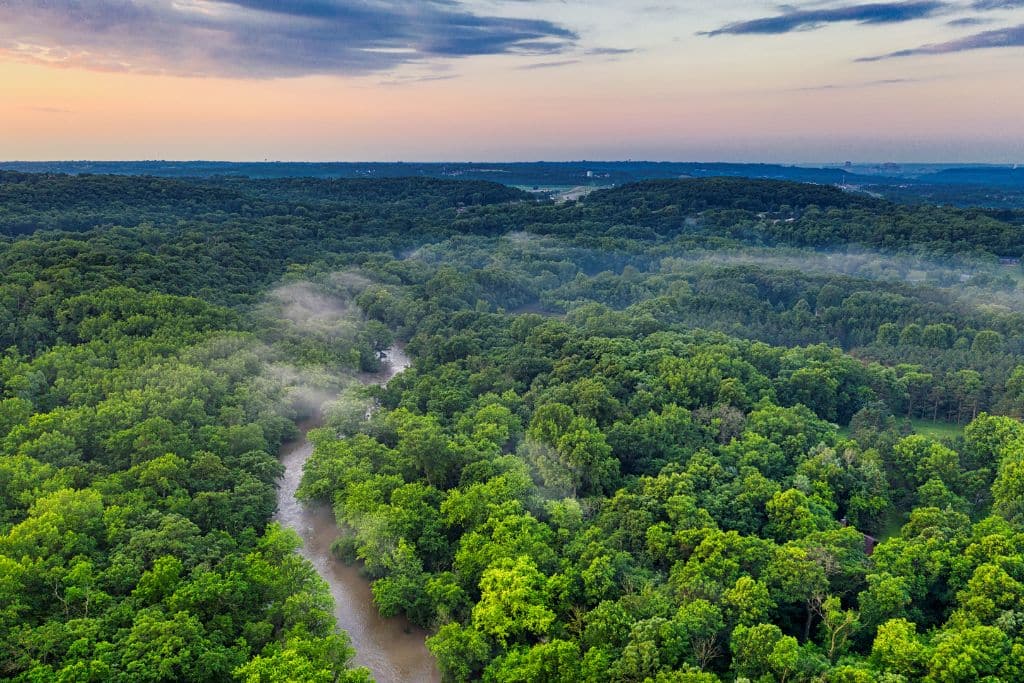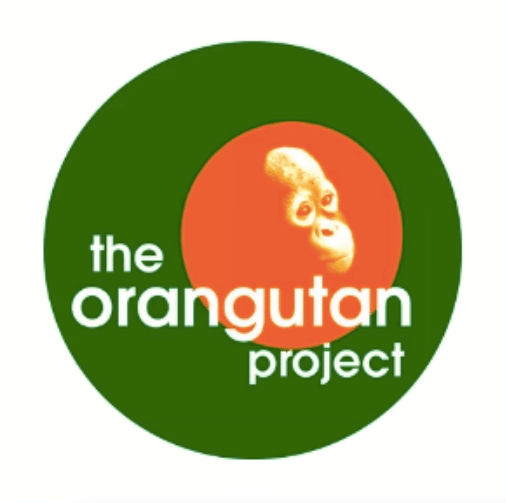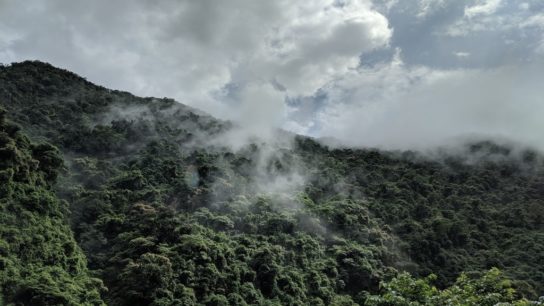It is not enough just to save individual species from extinction. If we are to survive the impending global extinction crisis, a holistic approach is needed that not only includes direct species conservation but also legal forest protection and regeneration that places indigenous communities at the forefront of the solution.
—
This article was written by Leif Cocks
As we look down the barrel of the sixth great extinction, it is tempting to believe we humans have ruined everything. That our actions cannot be repaired. That critically endangered species like orangutans, elephants, and tigers will not survive the extinction crisis. But conservationists all over the world know that the truth is much more nuanced than that.
There are environmental crises facing every country, every island, and every continent. Across the world, species are going extinct, some before we humans have even catalogued them for science. However, there are also solutions, both local and global, that have the power to halt species loss in their tracks.
In Indonesia – where orangutans, elephants, tigers, and many other species are endemic to the islands of Borneo and Sumatra – the race is on to save the remains of the great rainforests that once blanketed these islands. And one of the most important methods is funding the legal forest protection.
You might also like: Can We Save the Orangutan?
Saving Forests Means Saving Keystone Species
“To save species like orangutans, elephants, and tigers, we must first halt the destruction of their habitats – the rainforest and peatland ecosystems of Sumatra and Borneo,” says Leif Cocks, Founder of Wildlife Conservation International, an NGO that incorporates The Orangutan Project, International Elephant Project, International Tiger Project and Forests for People.
These keystone species play a critical role in the overall health and biodiversity of the habitats in which they live, and it is one of the reasons why we focus our conservation efforts on these three species.
“We know that when we save these keystone species, many other species living in these ecosystems will also benefit. Species like pangolins, civets, hornbills, and macaques, each play their individual role in the ecosystem,” says Leif.
“As orangutans swing through the trees, breaking branches they open up the canopy so sunlight can reach the lower levels of the forest, encouraging saplings to grow and making it possible for the forest to continue regenerating.
“Elephants leave perfectly germinated seeds behind in their dung. Tigers, as Indonesia’s apex predators, keep species like deer and boar from becoming too plentiful.
“If one of these species were to go extinct, the forests of Borneo and Sumatra would become impoverished and provide fewer nutrients and food for all other species – including humans.
“At the same time, we know that saving the forests is critical to ensuring that these charismatic species – and all others who live in the forests – are able to survive the extinction crisis. Orangutans, elephants, tigers and all other species in the forest have evolved together over millennia, living, competing, and supporting each other. We cannot have one without the other.”
What Must We Do to Save These Forests – And the Species Who Rely on Them?
While The Orangutan Project and its sister projects highlight the keystone species as the “heroes of the jungle”, the teams working on the ground in Indonesia and Malaysia are working to save all species by saving the remaining rainforests.
Forests like the Leuser Ecosystem in North Sumatra, the Bukit Tigapuluh Ecosystem in Central Sumatra, the Way Kambas forest in South Sumatra, the Sebangau Peat Forest in central Borneo, the Sungai Wain forest in eastern Borneo, and the Kinabatangan Ecosystem in northern Borneo all benefit from the work of conservationists, rangers, local communities, indigenous communities, fire-fighters, and even school children.
Wildlife rangers patrol forests, searching for evidence of illegal logging, hunters’ huts, and tracts of burnt forest, which are an indication of preparing the ground for an illegal plantation, as well as dismantling poachers snares. Where they can, rangers arrest and prosecute wildlife and environmental criminals. Where it is impossible to identify who set the snare or burned the forest, they educate communities and work with them to help them find better ways of coexisting with the rainforests and species they live close to.
“We often hear that it is a matter of “’wildlife versus people”, or “the environment versus the economy”. But these statements are both false,” says Leif. “The rainforest not only benefits the orangutans, elephants, and tigers; it also ensures life and livelihoods for indigenous communities and local communities. Many of these people have lived within and beside the rainforest for centuries, and they rely on the ecosystem for reliable water, climate mitigation, and much more.”
A critical aspect of their work is to support and empower local and indigenous communities, who have often been disenfranchised by huge corporations whose focus is on quick profits rather than the long-term sustainability of the forests.
One of the culprits we often hear about is palm oil, though it is not the only cause of forest destruction.
Ensuring the Legal Forest Protection
The truth is that stopping palm oil is not a preventative measure. Although it might remove one threat to forests, it does not solve the long-term issue of quick profits vs forest protection. Even if palm oil were to be removed overnight from our diets and cleaning products, forests would still be destroyed at an unsustainable rate.
Oil palm plantations would simply be replaced with another unsustainable monoculture, such as pulp paper trees. The only solution is to secure legal protection for these forests. This is a solution that addresses dozens of other issues facing Indonesians, their wildlife, and the rest of our world. Including the looming threat of climate change. This is a solution that invests in our planet.
“We are working to legally safeguard eight ecosystems of the right type, shape, and size to sustain large populations of orangutans, elephants, and tigers now and into the future,” says Leif. “Orangutans and other large mammals can only thrive in lowland riverine forests, so we’re focused on saving these forests. It’s not enough, for orangutan survival, to save just any tract of forest.”
The legal safeguarding of these forests is made possible through legally binding agreements that put a stop to deforestation, unsustainable monocultures, and mining. The Orangutan Project and their sister projects have formed partnerships to secure the future of a number of key ecosystems. But there is still much work to be done and thousands of hectares of forest that must still be protected.
The conversion of rainforest to unsustainable forms of agriculture, such as oil palm, rubber, and pulp paper, is only financially viable because it passes the “true cost of production” onto orangutans, other wildlife, and local and indigenous communities. The true cost of the destruction of these forests is much higher than we can ever imagine.
Saving the forests of Borneo and Sumatra is made possible thanks to donations from generous donors. To date, these projects have saved 3.2 million acres of critical rainforest habitat, safeguarding them from loggers, poachers, and plantations. This might sound like a lot, but millions more acres still urgently need to be legally protected. Without legal forest protection status, they are open to legal and illegal encroachment. We cannot afford to lose even one more acre.
The Orangutan Project, their sister projects, and their ground partners are in this for the long haul, with the hope that all orangutans, elephants and tigers will one day live wild and free in large, sustainable rainforests, safe from poachers and deforestation.
A monthly donation to The Orangutan Project’s Save Forest campaign is one of the most effective long-term ways of saving orangutans from extinction – helping to save their homes and helping to mitigate climate change at the same time.
You might also like: The Remarkable Benefits of Biodiversity


















